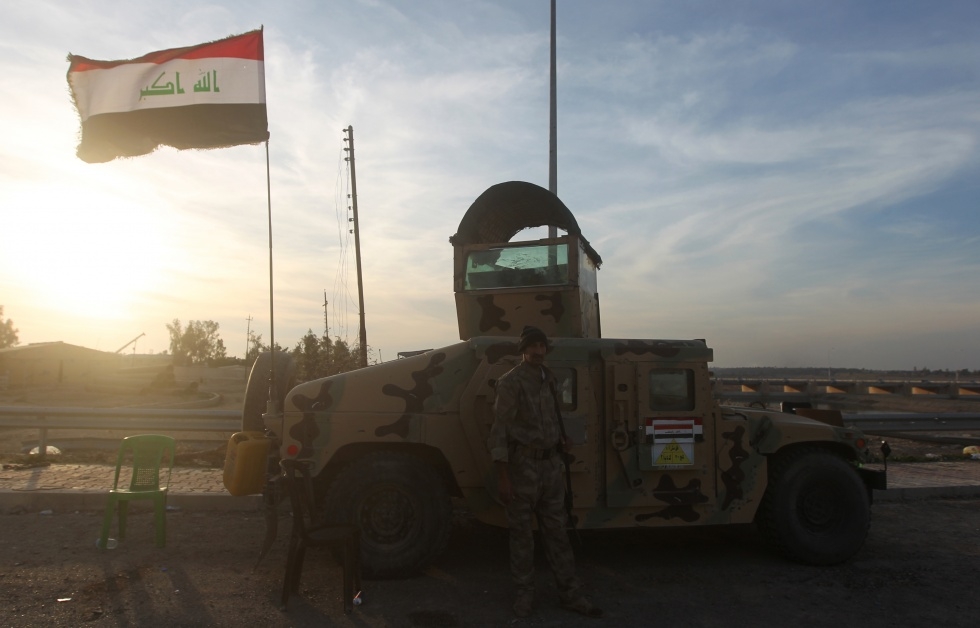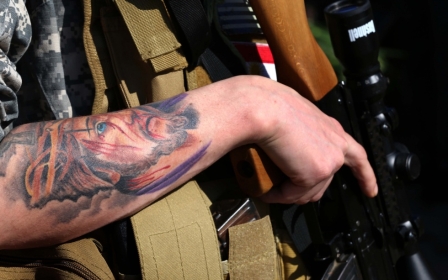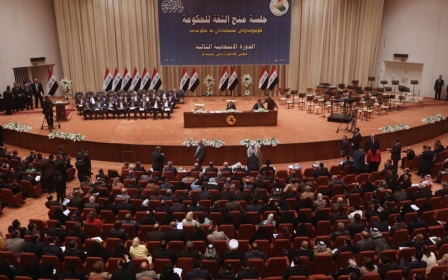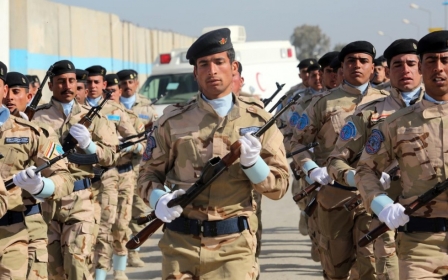US wants ground offensive to retake Iraq's Mosul from IS in April-May

The US wants Iraq to launch an offensive to retake the strategic northern city of Mosul from the Islamic State group in April or May, military officials said on Thursday.
Mosul is believed to be held by 1,000-2,000 IS fighters and 20,000-25,000 Iraqi troops are needed to carry out the offensive, an official with US Central Command said.
"The mark on the wall we are still shooting for is the April-May timeframe," the official said, adding that because of Ramadan and the increasing heat of summer, "it becomes problematic if it goes much later (than May)."
A US ground role in the offensive force, to help direct airstrikes, has not been ruled out, the official said.
But Iraqi troops will form the bulk of the force, while three Kurdish brigades are planned to also participate.
US-led coalition aircraft have recently focused airstrikes in the area of Mosul and Kurdish forces have made inroads on the ground nearby.
Kurdish peshmerga forces have also launched successful offensives against IS-held roads near Mosul, which is in the north of the country.
The city once held well over a million people but the remaining civilian population is reported now to be a fraction of that size.
Also on Thursday, military chiefs from two dozen countries gathered in the Saudi capital to seek ways of bolstering the Iraqi army against IS militants.
Many Iraqi soldiers abandoned their weapons and uniforms when IS advanced last June, seizing large areas of the country.
The militants also hold parts of Syria.
Riyadh talks seek stronger Iraqi army
Meanwhile, military chiefs from two dozen countries gathered in the Saudi capital on Thursday sought to bolster the Iraqi army against IS, a Western diplomat said.
US General Lloyd Austin, who heads the US-led war against IS, was among the senior officers attending the two-day talks that opened on Wednesday behind closed doors.
"I'm confident that they are looking at a firm plan, a coordinated plan, to empower the Iraqi army" against IS, the source said, asking for anonymity.
With "nobody" interested in putting ground troops into the country, strengthening Iraq's 200,000-strong army against about 30,000 IS fighters remains the best option, he said.
"The coalition remains the strength of our military campaign," said Austin, who leads the US Central Command.
In a statement, he said the capability of IS "has been degraded in Syria, and they are proving unable to take and hold new territory in Iraq."
But the campaign against them "will take time."
Among Western nations, Australia, Belgium, Britain, Canada, Denmark, France and the Netherlands have all bombed IS in Iraq, alongside the US.
Germany said in December it would send about 100 soldiers to northern Iraq to train Kurdish peshmerga fighters battling the extremists.
And regional powerhouse Saudi Arabia has been participating in airstrikes against IS in Syria since September.
Jordan, the United Arab Emirates and Bahrain have also deployed warplanes.
"I think Syria is somewhat on the back burner now," the source said. "The first thing is, you have to clear the house in Iraq."
He said he did not expect any dramatic change in coalition strategy from the Riyadh meeting.
American commanders have placed a top priority on pushing back IS in Iraq, while warning it could take years before a moderate Syrian rebel force is ready to make headway against the militants in Syria.
The official Saudi Press Agency said the 26 participating nations at the Riyadh talks aimed "to reach measures serving international and regional security."
Four similar meetings have occurred in other countries, SPA said.
New MEE newsletter: Jerusalem Dispatch
Sign up to get the latest insights and analysis on Israel-Palestine, alongside Turkey Unpacked and other MEE newsletters
Middle East Eye delivers independent and unrivalled coverage and analysis of the Middle East, North Africa and beyond. To learn more about republishing this content and the associated fees, please fill out this form. More about MEE can be found here.




